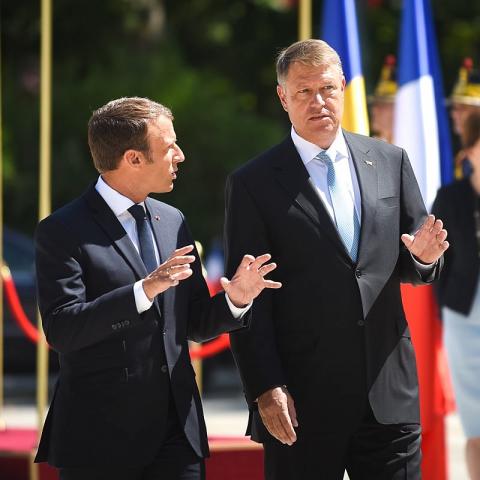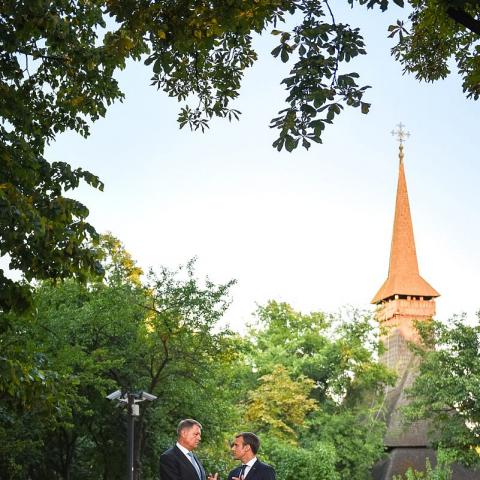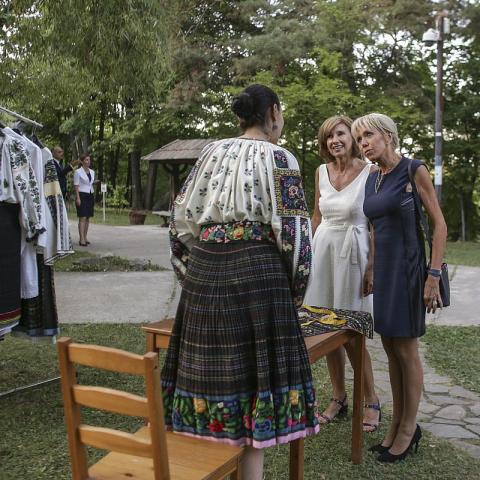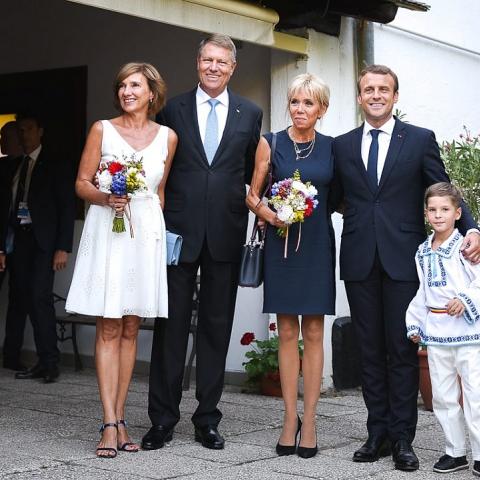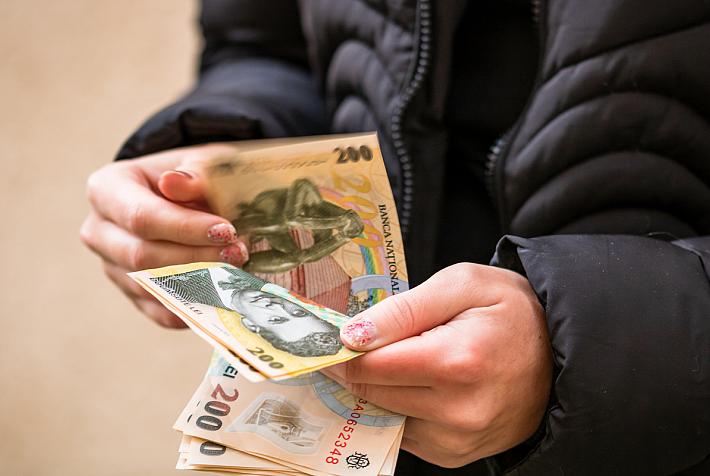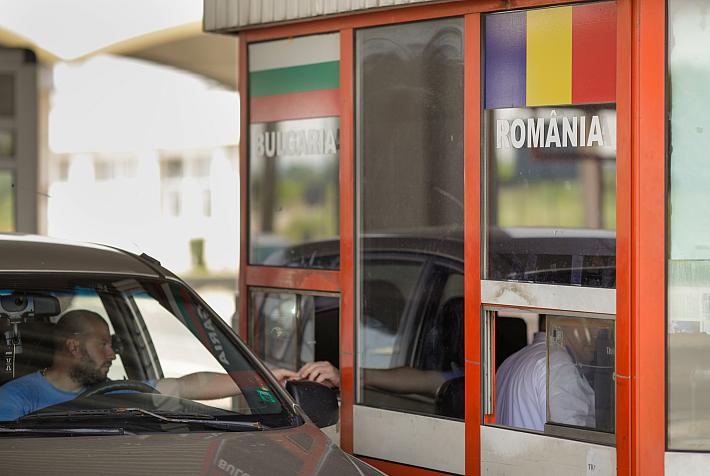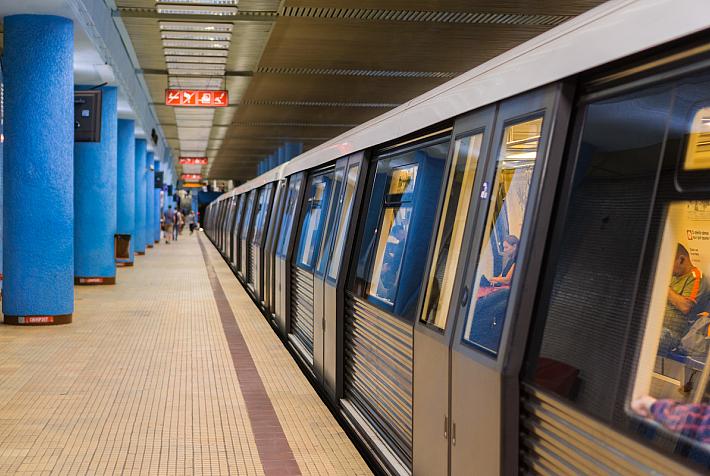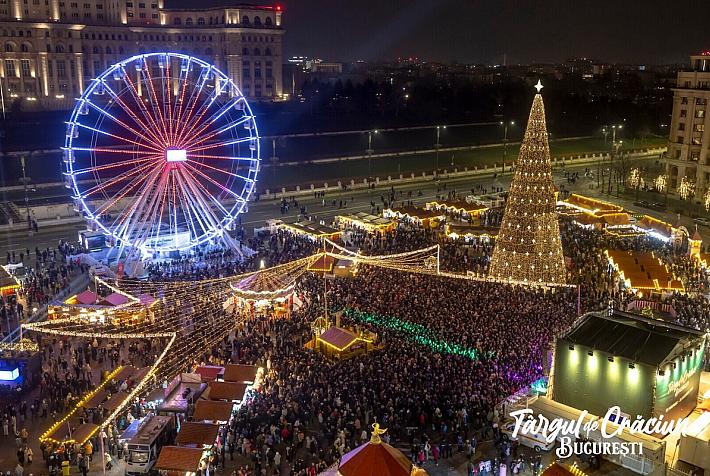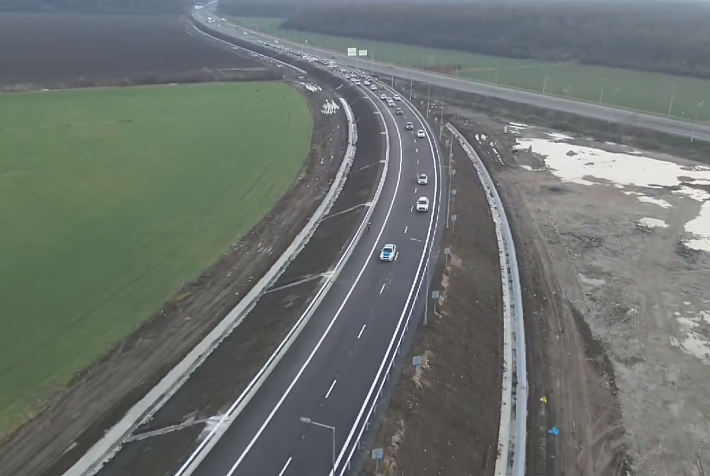French President Macron invites Romania to be partner in EU reform
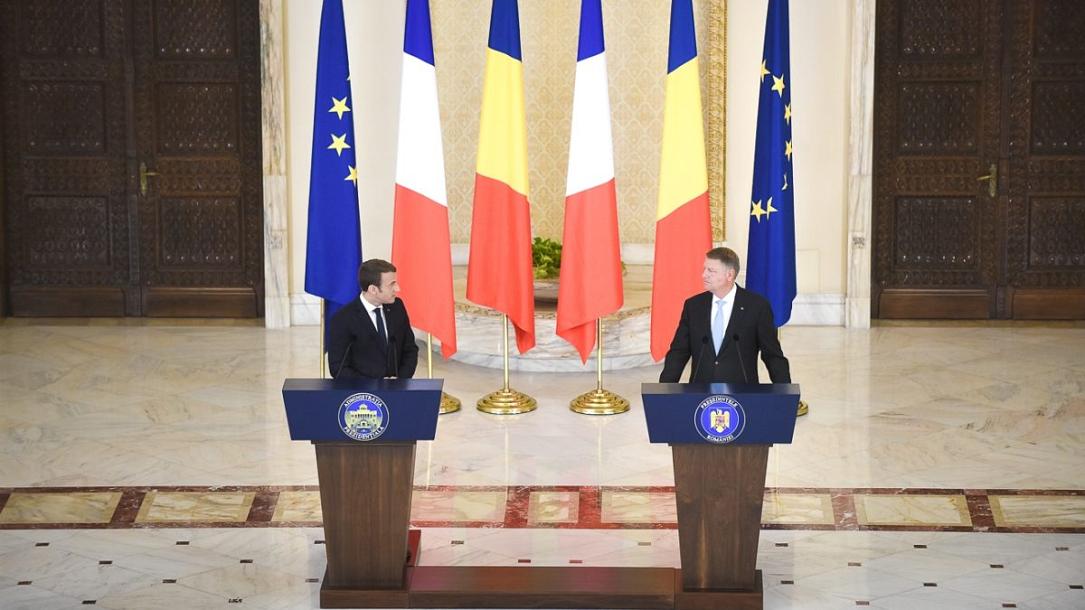
From a future EU reform to Romania's entry to the Schengen area, the visit of French president Emmanuel Macron to Bucharest tackled a range of political and economic issues. Macron promised to strengthen the strategic partnership between France and Romania and said he would return to the country next year to symbolically plant an oak tree in Iasi, a city in Eastern Romania.
During his 8-hour visit to Bucharest, Emmanuel Macron and his wife Brigitte visited the Village Museum together with Romanian President Klaus Iohannis and wife Carmen Iohannis.
Posted workers
President Klaus Iohannis pointed to the concerns of both sides on the posted worker directive but did not go into the specifics of what this could look like. He said the posted workers directive should be improved, considering that there is so much criticism about it.
“We need to see things as they are. On the one hand, there is dissatisfaction in France that there are workers that are apparently trying to elude the system, rather than fit into it. On the other hand, we can see there are very many Eastern Europeans, for instance people in Romania, who want to work in Spain, Germany, France. If this is the situation, it is very clear we need to improve this directive. It is unacceptable to see this dissatisfaction, on the one hand in Western Europe, on the other hand, the wish of people in the East to live better. Both are legitimate, and if this directive produced such disagreements in approach, it doesn’t mean that people in France are not right or that people in Romania are not right. It means the directive is not clear or good enough,” Iohannis said, quoted by News.ro.
The Romanian president said “nobody wants to remove competition or the free market” but rewriting the directive was not enough. “A much tighter collaboration is needed,” Iohannis said.
In his turn, French president Emmanuel Macron said France would not take the road transport out of the new agreement on posted workers that should be reached by October of this year.
“I would like it to be no ambiguity about the road transport. We are talking about two different things. France is not taking the road transport out of the agreement and we will continue to talk about this, but there are two different things. When I speak of the French road transporters who recruit Romanians, these fall under the agreement we hope to obtain. It is a form of posted work. If a French road transporter employs Romanian drivers in France for Romanian salaries, this falls under the directive concerning transport and will be covered by the agreement I hope to reach by October, so this has not been taken out of the agreement.”
At the same time, Macron said he would not accept that French transporters practice social dumping.
“I don’t accept that French transporters practice social dumping by employing people from countries with low labor costs because this is a breach of European rights. The road transport sector falls under this through the reform of this directive, and we will go all the way. At the same time, it is absolutely legitimate for countries where the road transport is important to develop all over Europe,” Macron said.
Meanwhile, the local Trade Union National Bloc (BNS) said it was supporting the European Parliament’s and Council’s proposal for the revision of the directive concerning posted workers in the services sector, according to News.ro.
BNS said it hoped the discussions between Macron and Iohannis would bring a dialogue with the representative economic and social actors in the country and bring a “reinstatement of normality, equality and fairness that Romanians await concerning the pay for their work undertaken in the EU.”
Before Macron’s visit to Romania, the National Union of Romanian Road Transporters (UNTRR) planned to protest against measures imposing a pay for Romanian drivers of almost EUR 10 per hour and a ban on regular, weekly rest in the vehicle’s cabin for the time spent on France’s territory.
The economic ties
During president Emmanuel Macron’s official visit to Romania, it was announced that the French group Airbus will extend by ten years the exclusive contract with the Romanian helicopter producer IAR Brasov to assemble the H215M heavy-duty helicopter in Romania. IAR would thus become the main contractor for all future H215M orders that the Romanian Ministry of Defense may place. Moreover, Romania will buy anti-aircraft missiles from the French group MBDA, via an agreement with Romania’s state defense contractor Romarm. The group also ponders investing in the production of military equipment in Romania.
Before the French President's visit, Airbus Helicopters, the subsidiary of the French group Airbus, said that it would expect the Romanian Government to organize a transparent tender for buying helicopters, according to France Presse (AFP)
Schengen entry and justice reform
While in Bucharest, the French president also spoke of the project to reform the justice laws and said that, in its current form, it “is not coherent with the will to fight against corruption.” He added that both the Romanian president and Prime Minister Mihai Tudose gave assurance that problems with the project will be corrected.
On the topic of the country’s entrance to the Schengen area, the French president said Romania has every right to demand this. However, he also said that the Schengen area is not “working well at the moment,” and invited Romania to take part in the discussions about reforming the free movement area.
“Schengen works poorly. The Dublin agreement no longer works well. I would like that, in the short-term, Europe has a reform of its migratory, asylum policy in order to function better and integrate Romania from the time of these discussions, and, in this new Schengen, Romania becomes a partner with full rights,” Macron told an audience at the French embassy in Bucharest, according to News.ro.
Macron said he would present this year an EU reform project and asked Romania to be its partner. “I want France and Romania to be partners in establishing new bases for the European Union,” he said.
2018 return
At the beginning of the meeting with Mihai Tudose, the French president received from the Romanian Prime Minister a twig from an oak planted 100 years ago in Iasi, in North Eastern Romania, by the French general Henri Berthelot. With the symbolic gift, Tudose extended to Macron the invitation to return to Romania in 2018 to plant a new oak tree.
The French President accepted the invitation and said he would return for the Romania – France Cultural Season. The season takes place between December 2018 and June 2019.
“I will return for the cultural season that we will launch together with the president and because, 90 years ago, a Frenchman came and planted an oak tree to celebrate the 1918 union. I will plant a new one, next year,” Macron said.
While in Bucharest, president Macron and his wife visited the Village Museum. There, they watched a pottery demonstration and a dance of the Teleorman Fiddlers ensemble, and received Horezu ceramic gifts. Their last stop at the museum was at a household from Jurilovca, where a performer sang La vie en rose at pan-pipe.
editor@romania-insider.com
(Photos: Octav Ganea, presidency.ro)







